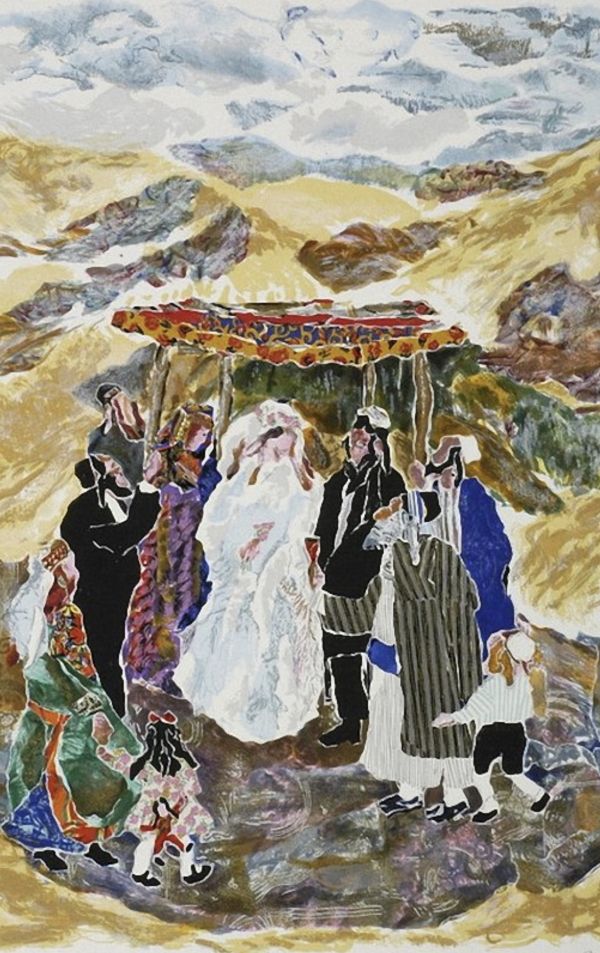Legalistic conception and hardness of heart
(Mk 10:1-12)
The controversy with the fanatics of the law highlights the need for a new messianic community, which goes beyond the exclusively legalistic moral conception.
The theme chosen by the Pharisees lent itself to putting Jesus in difficulty regarding the ideal of love.
The marriage law required the wife to become the property of her husband.
So in any case the divorce redounded to the detriment of the woman, always seen as an inferior being.
In the society of the time, male domination and marginalization of the weak were established situations.
To protect the freedom of women (Dt 24:1-4), the law required that the tired husband [even for a nonsense or whim] still wrote a divorce "letter" that sanctioned her free.
Unlike Roman society, the wife didn’t have the same right: a social plague, which obscured her dignity.
In practice she was like an object, and a slave even in her own home.
But in creating the human being, this was not the intent of the Creator. Thus Jesus takes away the privileges - even domestic ones - asking for maximum equality of rights and duties.
He knew that the apostles themselves preferred not to marry than to renounce the exclusivity of command (Mt 19:10: «If the situation of a man with a woman is like this, it’s not worth getting married»).
The Master does not allow the dominion of the strong over the weak, therefore the man must lose hegemony over the woman.
The new law is love, and love doesn’t allow possessions, emotional exploitation, fixed chains of command.
Both marriage and celibacy are choices that recognize the value of the Person.
Awe-inspiring options for God's Kingdom - not in the service of any compromise, supremacy, or other pretentious interests.
The divine plan for humanity is transparent, broad and generous. The marriage union itself is called to express the goal of a Fullness.
The stronger does not buy the weaker in ownership, but both enrich each other - with loyalty and even in differences, seen as advanced points of a proposal for growth and expansion.
Christ demands a new approach to ethics. This goes beyond the regulations, which they try to adapt to the order.
Therefore, the Lord's teaching here appeals to the divine creative Act which has engraved a capacity for gift and growth in person's nature - and it can’t be regulated by contract clauses, nor subjected to conditioning and subjection.
The step of the Faith builds people and communities, completing them without too many accelerations, or forced restrictions. For a Love that originates us without rest.
The Family thus becomes a ‘small domestic Church’ because it’s both autonomous and comprehensive; no more nomenclatures, compromises, masks, gags or straitjackets.
Then the complementarity experienced in an authentic way - without exteriority - can go beyond the case studies of the legal systems.
In this way it has good personal and social outcomes, evoking the very Presence of God in the world.
[Friday 7th wk. in O.T. February 28, 2025]












